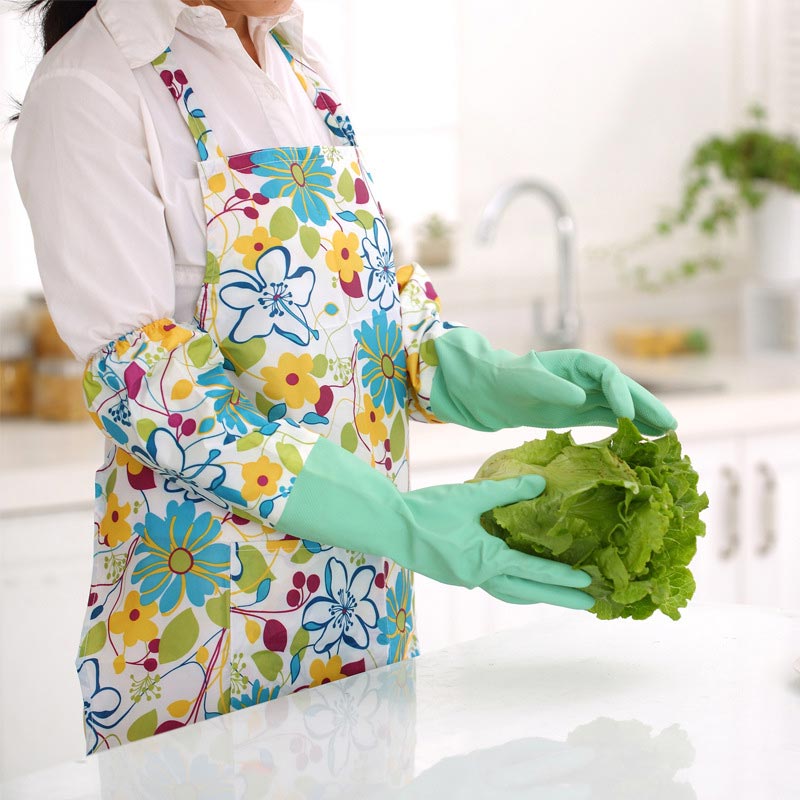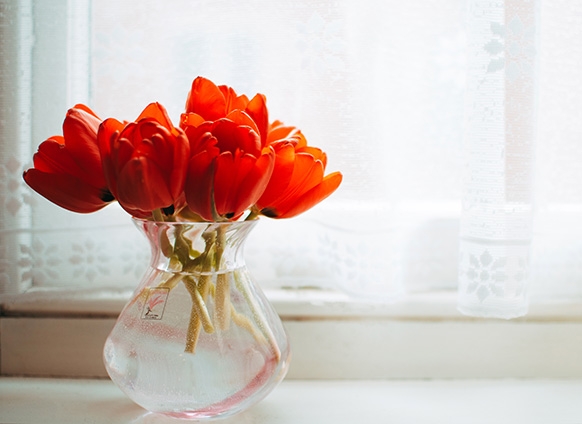Your parents taught you to mind your manners. You write thank you notes and tip your barista. But there’s more to being grateful than going through the motions. According to numerous studies, true gratitude is a powerful force that can improve your relationships, increase happiness and even boost immunity. Deep down, most of us know this to be true. But we still have trouble taking time from our busy lives to actually stop, reflect and give thanks for what matters most. The good news: Making the effort to get grateful is easier than you’d expect, and it’s way more effective than you might imagine.
Why it pays to be grateful
Spend just minutes each day reflecting on what you’re grateful for and we can pretty much guarantee you’ll see a snowball effect resulting in physical, psychological and social benefits. Here’s the catch: You need to get grateful throughout the year—not just on Thanksgiving.
One study published in the Journal of Psychosomatic Research confirmed that individuals who had a more grateful outlook got better quality shut-eye, stayed asleep longer and required less time to fall asleep than their less grateful peers. Perhaps more impressive, people who spent times focusing on grateful thoughts exercised for 1.5 more hours each week, compared to people who spent time focusing on the hassles in their life, according to a study in the Journal of Personality and Social Psychology. Plus, at least eight studies have shown that people who express gratitude tend to show fewer symptoms of depression.
A grateful state of mind can help you win big in business, too. One study conducted at Harvard Business School found that participants who were prompted to think of a time when they were grateful were less likely to act impulsively when it came to financial choices when compared with people who were prompted to think of something happy or neutral. Gratitude increases our level of patience, researchers suggested.
“Feeling gratitude and not expressing it is like wrapping a present and not giving it,” William Arthur Ward, an American writer, once said. In honour of Thanksgiving, here are nine simple ways to cultivate gratefulness every other day of the year.
Bust out your old diary
Studies show that people who make weekly gratitude journal entries feel better about their lives and more optimistic about the future. Not into breaking out the pen and paper? Try using an app. We like Five Minute Journal, which prompts you to write down three things you’re grateful for, three things that would make the day awesome and three affirmations (e.g. “I am confident,” “I am kind”) each day.
 Write a letter to someone who left a mark
Write a letter to someone who left a markRemember that teacher or professor who helped you explore your passions? Or the coach who gave you the confidence to win that game? Grab some stationary and write out a handwritten thank you. According to Martin Seligman, an internationally renowned psychologist and author of Flourish: A Visionary New Understanding of Happiness and Wellbeing, you’ll benefit from the pleasant memories of positive events and people in your life. Plus, your recipient will feel pretty darn great reading about your fond memories of them. If you want to make thank you notes a weekly habit, gratitude-focused subscription service Gramr.us will send you enough paper and envelopes to write four notes a month.
Appreciate the mundane
Once you get into a routine at home, you might start taking your partner or your housemates for granted. It’s easy to overlook daily tasks. But small acts of kindness, (like when a roommate cleans out the fridge without being asked) make your daily life easier. In one study published in Personal Relationships, showing everyday gratitude for these mundane acts helped improve and even strengthen relationships with significant others. Bonus: The effects weren’t just immediate—they lasted for days.
Bring gratitude to office grouches
Even your sometimes-grumpy boss could use some recognition. One study showed that when powerful, insecure people received gratitude from subordinates, they were less likely to exhibit aggressive behaviour. The corner office gets lonely, so show them some love and you just might be treated better in the future.
Compliment someone
There’s nothing like being on the receiving end of genuine praise—so why not make someone else’s day? Tell someone he or she looks awesome, did a great job, or rocked a workout. They’ll feel like a million bucks—quite literally. Receiving a compliment lights up the same regions of the brain that get activated when you receive cold hard cash, studies suggest. This region of the brain controls memory and learning, and researchers believe compliments can help us perform better for days after being given praise.
Thank behind-the-scenes people
From waiters and baristas, to cabbies and cleaning men and women, there are lots of people who help your life run smoothly. If someone has provided you a service, take a minute to ask his or her name and let him or her know you wouldn’t be able to function without that cup of coffee or late-night ride home. According to recent research, thanking new acquaintances for help can ensure that they’ll have your back in the future.
Give credit where credit’s due
Just finished a big collaborative project at work? Be the one to publicly toot everyone else’s horn. Recognizing how each person contributed to the success of the group will create a sense of community and can make individuals more motivated to bring their A-game next time around, suggests research from psychologists in Japan. Not the type to shout your appreciation from the rooftops? Write someone’s manager a note to report excellent service.
Make it a public affair
Posting on social media or participating in an online gratitude project can help you pay your grateful feelings forward. According to data scientists at Facebook, emotions are contagious on the social network. Post a grateful status update and your friends just might feel more positive. Don’t want to bombard your personal newsfeed every day? The Gratitude Jar, read why other people around the world are feeling grateful, and add your own positive thoughts to the “jar.” Or, put your blessings on the World Gratitude Map.
Put gratitude before gossip
Catching up with friends over a few beers? Instead of immediately ranting about a bad roommate, demanding boss or weird date, start by sharing the positive highlights of your life. Talking through hardships is important, but sharing the good stuff with your buddies can help you feel happier and even help you cope with the truly sucky things that occur.
Gratitude isn’t about believing that life is perfect, writes Robert Emmons in Why Gratitude Is Good. Rather, it’s about identifying happiness when we look at our lives as a whole.

